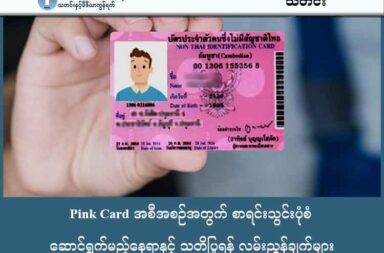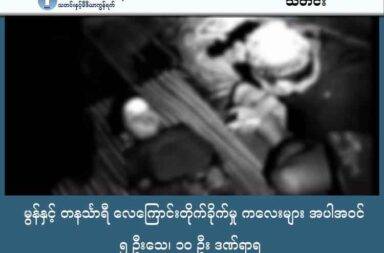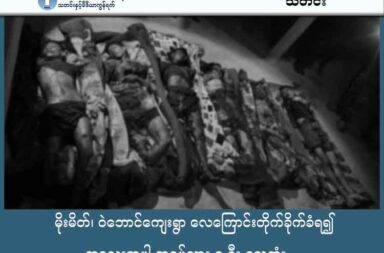IEC Begins Administering Karenni State
By Network Media Group
Thursday, December 7, 2023
After seizing most of Karenni State, the Interim Executive Council (IEC), established in June, is implementing its administrative programmes.
According to Aung San Myint, the chair of the Karenni State Consultative Council, which oversees IEC, before the resistance launched the 1111 Operation on November 11, they already controlled 65 percent of the state. Now that the military regime, known as State Administration Council (SAC), has lost control, the resistance has taken over all of it.
He explained that IEC, interim parliament, judicial sectors, including township courts are operating. “After the military council falls, our IEC will continue to operate in Karenni State,” Aung San Myint said, explaining key departments have been established: health, education, humanitarian, relief and rehabilitation, women and children, financial and customs, and home affairs.
IEC general secretary Khu Plu Reh said, “We have tried to uproot the dictatorship through armed struggles. At the same time, we have to established our administrative, political, social, and economic sectors. We understand the need to build up our state during the revolutionary period.”
He stressed the many challenges they face in implementing IEC’s goals amid funding and human resource shortages, while fighting is still quite active and tens of thousands of people have recently had to flee. Hundreds of thousands of civilians who have been displaced since the war started in Karenni and Mobye in southern Shan states further complicate this process.
IEC appointed a head and deputy head of the judicial department on November 29.
Karenni State police will lay charges against the rector, deputy rector, and three others from Loikaw University for conspiring with SAC. They were detained after resistance forces recently captured the university from junta soldiers.
Although IEC is responsible for all of Karenni State and Mobye in southern Shan State, it has so far administered its programmes in nine townships in Kanrarawadi, Kyebogyi, Bawlakhe, and Mobye regions.


